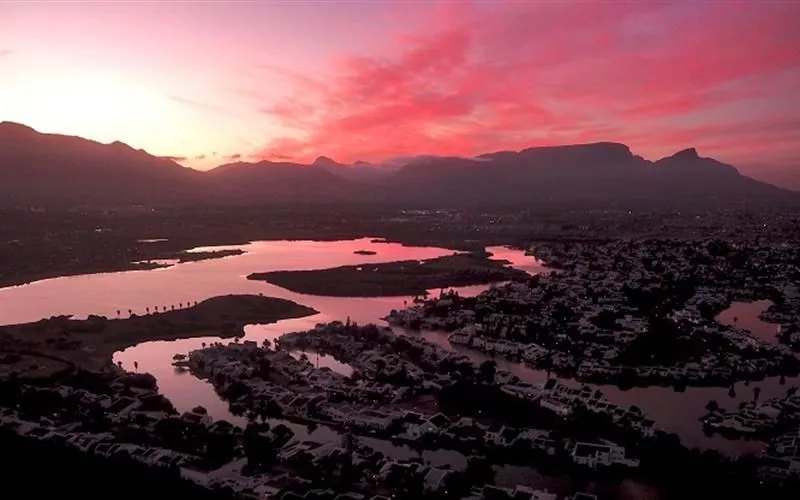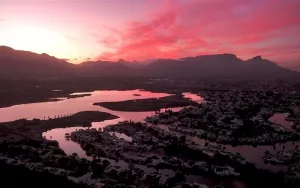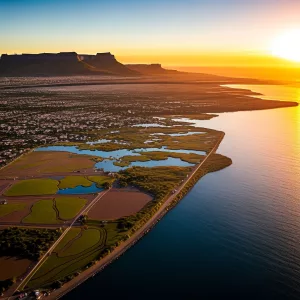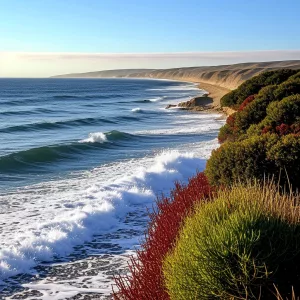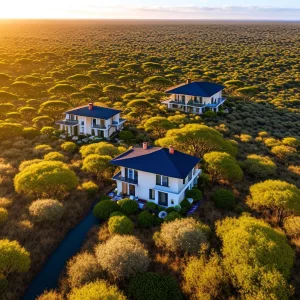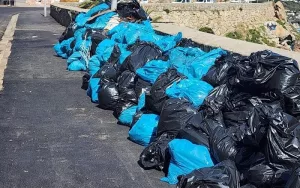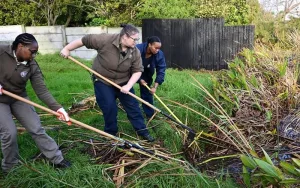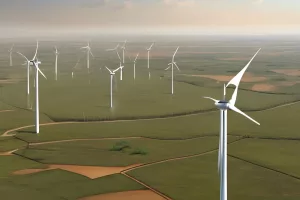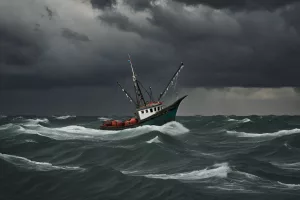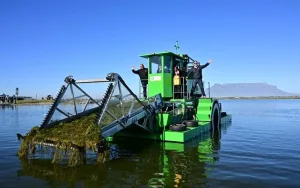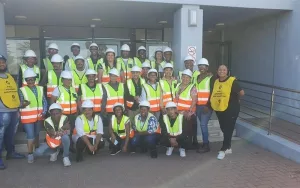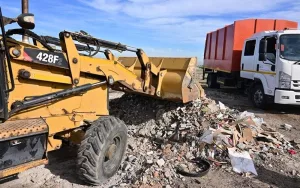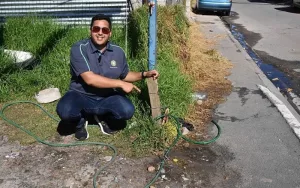Cape Town is a vibrant treasure chest of nature, known for its amazing plants and animals. The city is committed to protecting this natural beauty through a special plan that blends city growth with environmental care. This plan helps keep Cape Town’s unique ecosystems safe while inviting residents to share their thoughts on how to improve it. As the city looks to the future, it stands proud as a leader in conservation, showing that urban life and nature can happily coexist.
Cape Town is a stunning city where mountains meet the sea, bursting with incredible plants and animals found nowhere else on Earth. Known as the most biodiverse city in the world, it proudly protects its unique nature through plans like the Biodiversity Spatial Plan. This plan helps Cape Town manage its natural spaces while keeping the city growing. By involving its community in caring for the environment, Cape Town sets an inspiring example for cities everywhere, showing that people and nature can thrive together.
Cape Town is using digital meetings to bring its people together and talk openly about big city challenges like rapid growth and protecting nature. The city fights to save its wetlands, coastline, and urban forests while battling invasive pests that harm trees. At the same time, Cape Town is fixing up neighborhoods and planning smart, mixeduse spaces that balance homes, jobs, and green areas. With strong rules and shared voices, the city aims to grow in a way that keeps both people and the environment healthy and connected.
Cape Town is planning a bright future by caring for nature, growing jobs, and inviting everyone to join the conversation. The city is spending over R1.1 billion to restore wetlands, protect its coastline, and upgrade parks and neighborhoods. Leaders are using a new online forum to bring people together, making sure all voices can help shape the city’s plans. This mix of caring for the environment and people aims to build a strong, fair, and beautiful Cape Town for everyone.
The Botmaskop Fynbos Estate, a fancy housing project in Stellenbosch, is facing a big fight over its impact on the environment. The Stellenbosch Interest Group (SIG) is challenging the project, saying it was approved without enough public input and threatens the beautiful natural surroundings. As construction moves forward, SIG is asking the court to pause the project until its legality is assessed, fearing that once built, it will harm the area’s unique beauty for good. The developers, on the other hand, argue that stopping the project now would lead to serious financial problems. This clash highlights the tough balance between luxury development and protecting the environment, raising important questions about how we value and care for our landscapes.
Get ready for a magical night at the Wings For Change Italian Soirée in Stellenbosch! On March 22, 2025, the Waterford Estate will be transformed into a dazzling celebration of Italy, featuring delicious gourmet food and fine wines that will transport your taste buds to the heart of Italy. Enjoy stunning performances by the talented opera singer Innocent Masuku, whose powerful voice and personal journey will leave you inspired. This enchanting evening not only promises great entertainment but also supports a vital cause for environmental conservation, making it a night of joy and purpose!
A team of 15 dedicated individuals from the Coastal Management Branch, Shark Spotters, and the Coastal Conservation team worked tirelessly for four days to clean up Bantry Bay’s rugged coastline. Despite facing challenging weather conditions and fluctuating tides, they managed to fill an impressive 2,356 municipal bags with rubbish. The success of this operation was a testament to the effective partnership between the different teams and highlights the importance of joint conservation efforts in protecting our planet’s natural heritage.
On World Ranger Day 2024, we celebrate the inspiring women rangers who protect Cape Town’s reserves. These conservation champions have received comprehensive training and provide diverse skills to preserve the environment. From Victoria Day, a reserve supervisor at False Bay Nature Reserve, to Vuyokazi Rubushe, a field ranger at Helderberg Nature Reserve, these women’s journeys highlight the importance of offering equal opportunities and embody the pillars of success: passion, dedication, and a commitment to learning.
Commitment to Green Future: South Africa’s Forestry, Fisheries, and Environment Department’s Budget Vote 2024/25 Overview
South Africa’s Forestry, Fisheries, and Environment Department’s Budget Vote 32 highlights their commitment to environmental preservation and sustainable employment. The department has generated over 80,000 job opportunities through EPWP projects, with a focus on diversity and inclusion. Their collaboration with municipalities aids in delivering waste management services and generating job opportunities, while their efforts to create biodiversity infrastructure facilities reflect their commitment to biodiversity and economic development. The department’s budget vote signifies the government’s eagerness to foster sustainable growth and protect South Africa’s natural heritage, aligning with Madiba’s vision to safeguard our environment.
Embracing Progress: Navigating South Africa’s Economic, Environmental, and Political Landscape
South Africa is making strides to combat the climate crisis by implementing Sectoral Emission Targets, a Just Energy Transition Investment Plan, and establishing the Climate Change Response Fund. The country is also shifting towards renewable energy and passing comprehensive legislation to minimize greenhouse gas emissions. The Department of Forestry, Fisheries, and the Environment is prioritizing environmental conservation, including wildlife protection, marine resource management, and waste management initiatives. Overall, South Africa is working towards a sustainable future through innovative climate action and ethical administration.
South African smallscale fishermen are standing up against TotalEnergies’ offshore oil and gas exploration plans amid fears that they will ruin their livelihoods. Led by fisherman Sifiso Ntsunguzi, the community is concerned about the environmental impact of the proposed sites and the potential loss of fish, which is their main source of food and income. Environmental group Green Connection has sued the government over TotalEnergies’ environmental authorisation, and the company’s promises to reach netzero carbon emissions by 2050 are being scrutinised. The conflict highlights the challenges of balancing economic development with environmental preservation.
Cape Town’s ‘I am a Smart Driver’ initiative is a driving program that promotes responsible and sustainable driving among city fleet drivers. The program requires training for all drivers and has already resulted in significant fuel savings, reduced CO2 emissions, and improved road safety. The program is a concrete city initiative that is monitored through advanced technology to track driver behavior, fuel usage, and safety records. It serves as a model for other cities to follow in fostering environmentally friendly practices and sustainable urban development.
The launch of ‘Otter’, a custombuilt weed harvester, marks a significant milestone in the environmental conservation of Rietvlei in Cape Town. Its function is to cut, collect, and eradicate aquatic plants to improve water quality and make the vlei safer and more accessible for watercraft and the local communities. The initiative is part of the City’s commitment to the preservation of its cherished recreational vleis and contributes to the local economies flourishing around these vleis. ‘Otter’ is a commendable step towards the management of natural resources.
A Brighter Tafelsig: Waste Education for Community Wellness and Environmental Conservation
Waste management education is transforming the Tafelsig community in Cape Town, with the Urban Waste Management Public Awareness, Communication, and Education team and Wolfgat Nature Reserve leading the charge. The community has been educated on proper waste disposal, the negative impacts of illegal dumping, and the importance of recycling and community cleanup campaigns. Through collective responsibility, Cape Town is working towards a cleaner, healthier environment. Their efforts underline the critical role of education in not only addressing waste management but also nurturing a sense of community, responsibility, and pride for their city.
Cape Town celebrated Global Recycling Day in 2024 with a unique strategy focused on education and community involvement. The day included the participation of Bingo, a popular antilitter mascot, and the launch of the Clean Up and Recycle Project to heighten awareness about recycling. Students also received handson learning about responsible waste disposal and recycling at the Kraaifontein Integrated Waste Management facility. The city’s commitment to a sustainable waste culture serves as a model for cities worldwide.
Cape Town is fiercely committed to preserving its environment, showcased by the Water and Sanitation Directorate’s Water Pollution Control team’s campaign against unlawful stormwater system connections and discharges. Over the past year, the team inspected over 12,000 properties, issuing 159 violation notices and disconnecting 40 illegal connections. Future plans include continuing inspections and enforcing the correction of illegal connections and discharges. Cape Town’s unwavering dedication to conservation serves as a shining beacon of respect for both current and future generations.

